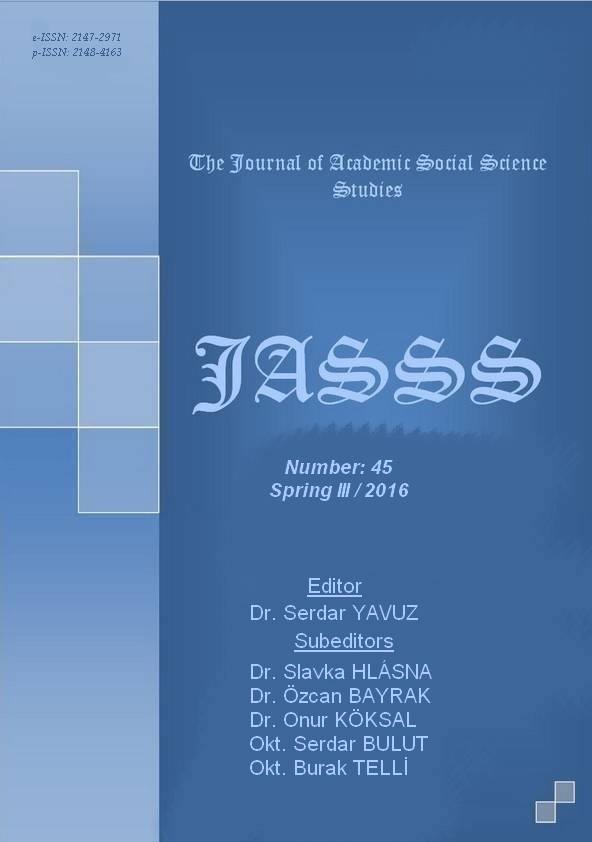TÜRKİYE EKONOMİSİNDE REEL DÖVİZ KURU VE İTHALAT İLİŞKİSİ: TÜKETİM VE YATIRIM ETKİLEŞİMİ ÜZERİNE AMPİRİK ANALİZ
Author :
Abstract
Dış ticaret dengesi ve reel döviz kuru ilişkisi başka bir ifade ile dış ticaret dengesinin reel döviz kuru hareketlerine tepkisi her dışa açık ekonomide temel etkileyici faktörlerin başında gelmektedir. Özellikle gelişmekte olan ekonomilerde üretim ve ticaret yapısı nedeni ile reel döviz kuru hareketleri dış ticaret dengesi üzerinde belirleyici bir etkiye sahiptir. Gelişmekte olan ülke kategorisinde yer alan Türkiye ekonomisinde de özellikle ithalata bağımlı üretim ve ticaret yapabilen yapısı gereği reel döviz kuru hareketleri dış ticaret dengesi üzerinde önemli etkilere sahiptir. Ülkenin uluslararası rekabet gücünü belirleyen bir faktör olarak döviz kuru ve döviz kuru politikalarının etkisini ifade etmek bu anlamda önem kazanmaktadır. Çalışmada Türkiye ekonomisinde 2003:01-2015:10 dönemi için döviz kurları ile yatırım malı ve tüketim malı ithalatı üzerinden yatırım tüketim etkileşimi ampirik olarak incelenmektedir. Granger Nedensellik analizi, etki tepki analizi ve varyans ayrıştırması yöntemlerinin kullanıldığı çalışmada, ekonometrik analizler sonucunda, döviz kurlarındaki bir değişme ile yatırım ve tüketim malı ithalatı arasında nedensellik ilişkisine rastlanılmıştır. Kur değişmeleri Türkiye ekonomisi üretim ve ihracat yapan kesimi maliyet unsuru olarak etkilemektedir. Sonuç olarak, döviz kurlarının yatırım ve tüketim malı ithalatı üzerinde etkili olduğu sonucuna ulaşılmıştır. Bu bağlamda döviz kurları ile nedensellik ilişkisi içerisinde bulunan sermaye malı ve tüketim malı ithalatının reel döviz kuru tarafından etkilendiği anlaşılmaktadır. Bu bağlamda kur hareketleri ithalat üzerinde önemli bir etkiye sahip olup özellikle tüketim malı ithalatındaki değişmelerin çok yüksek oranda sermaye malı ithalatındaki değişmelerden kaynaklandığı sonucu dikkat çekmektedir.
Keywords
Abstract
Relationship between balance of foreign trade and real exchange rate, in other words, reaction of balance of foreign trade towards real exchange rate is a leading and effective factor in each outward-oriented economy. Real exchange rate movements have a determinative effect on the balance of foreign trade as a result of production and trade structure especially in developing economies. Real exchange rate movements have also serious effects on the balance of foreign trade in Turkish economy, as a developing country, as a result of its structure which can carry out importation-oriented production and trade. In this regard, it is necessary to touch upon the effect of exchange rates and exchange rate policies as a factor which determines international competitive capacity of the country. In the study, the interaction between investment and consumption has empirically been analyzed in terms of exchange rates and the importation of investment goods and consumption goods in Turkish economy for 2003:01-2015:10 period. Granger Causality analysis, action-reaction analysis and variance decomposition methods have been used in the study and a causality relationship has been realized between a change in exchange rates and importation of investment goods and consumption goods as a result of econometric analyses. Changes in exchange rates affect the production and exportation units of Turkish economy in terms of a cost factor. In conclusion, it has been concluded that exchange rates are effective in the importation of investment goods and consumption goods. In this regard, it is also understood that real exchange rates affect the importation of capital goods and consumption goods which is in causality relation with exchange rates. In this regard, rate movements have a serious effect on importation and it is notable that especially changes in the importation of consumption goods highly arise out of the changes in the importation of capital goods.





